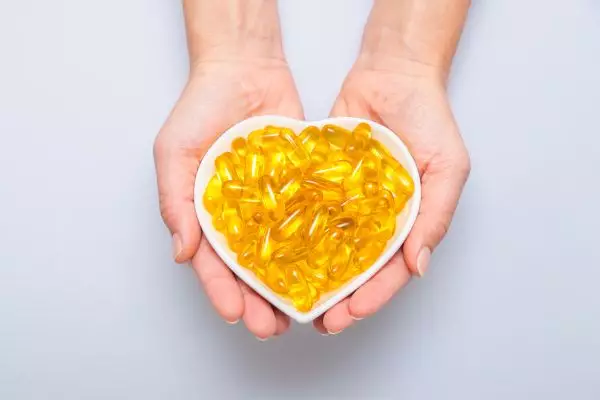 Unsaturated acids are mostly omega 3 and 6 acids. Both of them are needed to ensure good health – whereas the right proportions have to be maintained. Consuming too much of omega 6 acids contributes to development of inflammations. One group of people with increased omega 3 requirement are athletes – working out generates plenty of free radicals and microdamages of muscles, requires the heart to work harder, puts burden on bones and joints – the body can only handle such challenge if we provide it with the right omega 3 supply.
Unsaturated acids are mostly omega 3 and 6 acids. Both of them are needed to ensure good health – whereas the right proportions have to be maintained. Consuming too much of omega 6 acids contributes to development of inflammations. One group of people with increased omega 3 requirement are athletes – working out generates plenty of free radicals and microdamages of muscles, requires the heart to work harder, puts burden on bones and joints – the body can only handle such challenge if we provide it with the right omega 3 supply.
Omega 3 fatty acids take care of ensuring proper functioning of the entire body, and they become especially important for athletes.
The benefits of getting high doses of omega 3 cannot be exaggerated:
– omega 3 increase protein synthesis
– unsaturated acids limit undesirable catabolic reactions, thus preventing excessive disintegration of muscle proteins
– omega 3 increase cellular insulin sensitivity, which ensures optimal glucose supply to working muscles and allows for intense effort
– omega 3 alleviate inflammations, thus supporting post-workout regeneration
– by supporting functioning of brain and nervous system, omega 3 provide great motor coordination when working out
– omega 3 support synthesis of hormones, including the anabolic growth hormone
– athletes take omega 3 for joints – unsaturated acids stop the development of inflammations and degenerative processes
Thanks to having such versatile properties, omega 3 provide great conditions for working out and regeneration. How much omega 3 do we need to get from the diet?
Omega 3 can be provided through food– the richest in this nutrient are saltwater fish: sardines, tuna, mackerel, cod. Omega 3 fatty acids can also be provided through plant oils, especially the rapeseed and linseed oils, as well as flaxseed oil, chia seeds, nuts and pumpkin seeds or avocado. These are the products that should be included in every athlete’s diet. We shouldn’t forget about a supplementation, though – taking DHA and EPA acid capsules makes a valuable supplementation of the diet and the supplementation plan for athletes. Some of them even take up to 2 g of it a day with supplements – that’s the requirement for omega 3 acids.
You must be logged in to post a comment.
Visitor Rating: 5 Stars